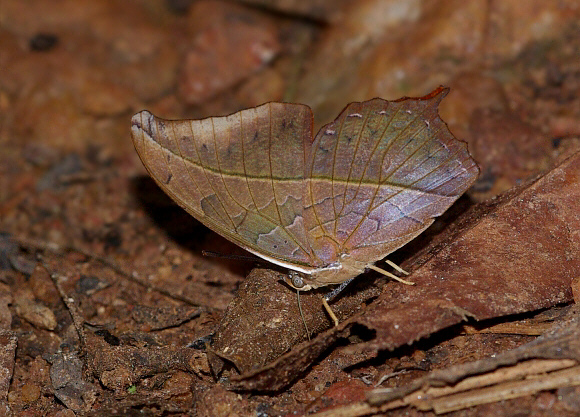
Introduction
The Charaxinae are a group of robust, medium to large Nymphalids characterised by having a rapid and powerful flight, stout bodies, falcate apexes, and a habit of feeding at dung and carrion. They are represented in the neotropics by genera including Consul, Memphis, Prepona and Agrias; in the Oriental and Australian regions by Polyura and Charaxes, and in Africa by Charaxes, Euxanthe and Palla.
There are 179 Charaxes species in the Afrotropical region, one of which – jasius, extends its range as far north as the Mediterranean coast of Europe. Most are forest-dwellers but several are adapted to savannah and arid Acacia thorn scrub habitats.
Charaxes paphianus has a fiery orange-brown upperside, with a black apex. The only other species with which it can be confused is pleione, but the latter does not have falcate forewings, and is more strongly marked on the underside.
Charaxes paphianus is found from Sierra Leone to Sudan, and south to Angola, Congo, Uganda and western Kenya. The illustrated subspecies falcata is restricted to West Africa.
Habitats
This species is found in good quality rainforest habitats.
Lifecycle
As with other Charaxes species, the egg is barrel-shaped and carries a series of ridges and keels around the upper part. The caterpillar feeds on Acacia ( Fabaceae ).
Adult behaviour
Males are usually encountered singly when feeding at dung or urine-soaked ground, and can also be seen perching on the foliage of bushes and saplings along the edge of forest roads.
